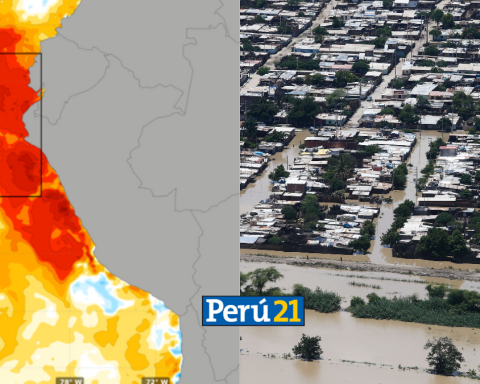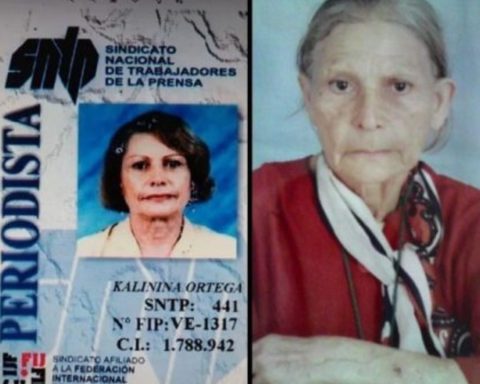The The omicron variant once again put the discussion on the obligation to be vaccinated against covid-19 to work on the table. Sterile discussion, because in the absence of norm, a worker cannot be forced to get vaccinated against covid-19.
But something else is possibilities for an employer to manage workers’ options regarding inoculation. The issue should therefore be raised based on the attributions of an employer to organize the work of those who do not get vaccinated, with those who do, and in relation to their dealings with clients or the demands of the latter.
For example,You can change the hours or place of work, send unemployment insurance or even fire those who choose not to be vaccinated?
Competing rights. In the absence of a regulation that requires vaccination against covid, the option of not being inoculated implies exercising a right. Liberty. Therefore, in no case is this option subject to disciplinary sanction.
But That freedom of the one who does not want to be vaccinated does not necessarily take precedence over other rights such as the health of other workers or clients, the freedom of industry and commerce of the employer or even the right to work.
Health: from clients (the clearest case: health homes) or from other workers (especially those who cannot be vaccinated due to previous pathologies that prevent them). Meanwhile, medical information shows that the vaccinated infect 12 times less COVID-19 than the unvaccinated. The virus would be gone from your body sooner and the maximum viral load drops faster.
Freedom of industry and commerce of the employeeA: when your clients or users demand inoculation as a condition for hiring you. Which affects the work of your employees.
What right prevails in those cases: The freedom of the one who does not get vaccinated, the health of clients or workers, the freedom of industry and commerce of the employer or the right to work?
There is no generic answer. Because saved for life, all human rights have the same hierarchy, and only by analyzing specific cases of collision of rights, applying theories of harmonization of rights, we come up with an answer.
So in cases like those mentioned, In which the exercise of the freedom of those who are not vaccinated may affect other fundamental rights, the adoption of measures that ensure that these rights can coexist may be founded.
How to guarantee the enjoyment of the rights at stake
At the company level, The rights at stake could be guaranteed, adopting business decisions that imply modifying the working conditions of one or the other.
Regarding those who do not get vaccinated, a Employer could vary their working conditions (in terms of time or place), as measures that tend to prevent contagion and / or meet customer needs.
It could send those who choose not to be vaccinated to unemployment insurance, in cases where such refusal could lead to a suspension of activity for reasons beyond the employer’s control that falls within the risk covered by unemployment insurance.
The million dollar doubt: a dismissal could be justified? There may be cases where yes. As we saw, all human rights have the same hierarchy, and only by analyzing specific cases of collision, we come up with an answer. This being the case, you have to be in each case.
We would not be facing cases of discrimination or sanction for non-vaccination. But before a non-maintenance job based on objective reasons.
What would be the grounds for dismissal in the last mentioned case? Common dismissal, proceeding with the payment of compensation (it could not be classified as notorious misconduct).
Is there a risk of unfair dismissal? It seems clear that whatWhat motivates a dismissal would not be linked to a special unlawfulness, but to the prevention of occupational risks in the company and the health care of workers and clients. But you have to be in each case.
Normative foundations
There is no express rule on covid-19, but there is on the obligations of employers in relation to the issue. On the one hand, what is established in the international labor agreement No. 155 of the International Labor Organization (ratified by Law 15,965 in Uruguay) in its art. 16: “Employers should be required, to the extent reasonable and practicable, to ensure that workplaces … under their control are safe and do not pose any risk to the safety and health of workers (… ) “.
The feasibility of vaccination is a fact, and its reasonableness will be more evident in some cases than in others..
On the other hand, if it is considered or demonstrated that the vaccine against covid-19 is “effective” to reduce infections and symptoms, it is important to consider what Decree 406/988 provides in its art. 47: “In all cases where there is an effective vaccine, it will be mandatory, both its application to animals and workers, as appropriate. The employer must require the corresponding Certificate of Vaccination. The lack of this will be considered omission, subject to the corresponding regulatory sanctions. “
Closing
The question is not whether a worker can be forced to get vaccinated. Always negative answer. But if an employer can change their working conditions or fire them, in cases where there are well-founded and objective reasons that make other rights prevail.
Lawyer, professor at the University of Montevideo and IEEM. Partner of Pérez del Castillo & Asociados.
















